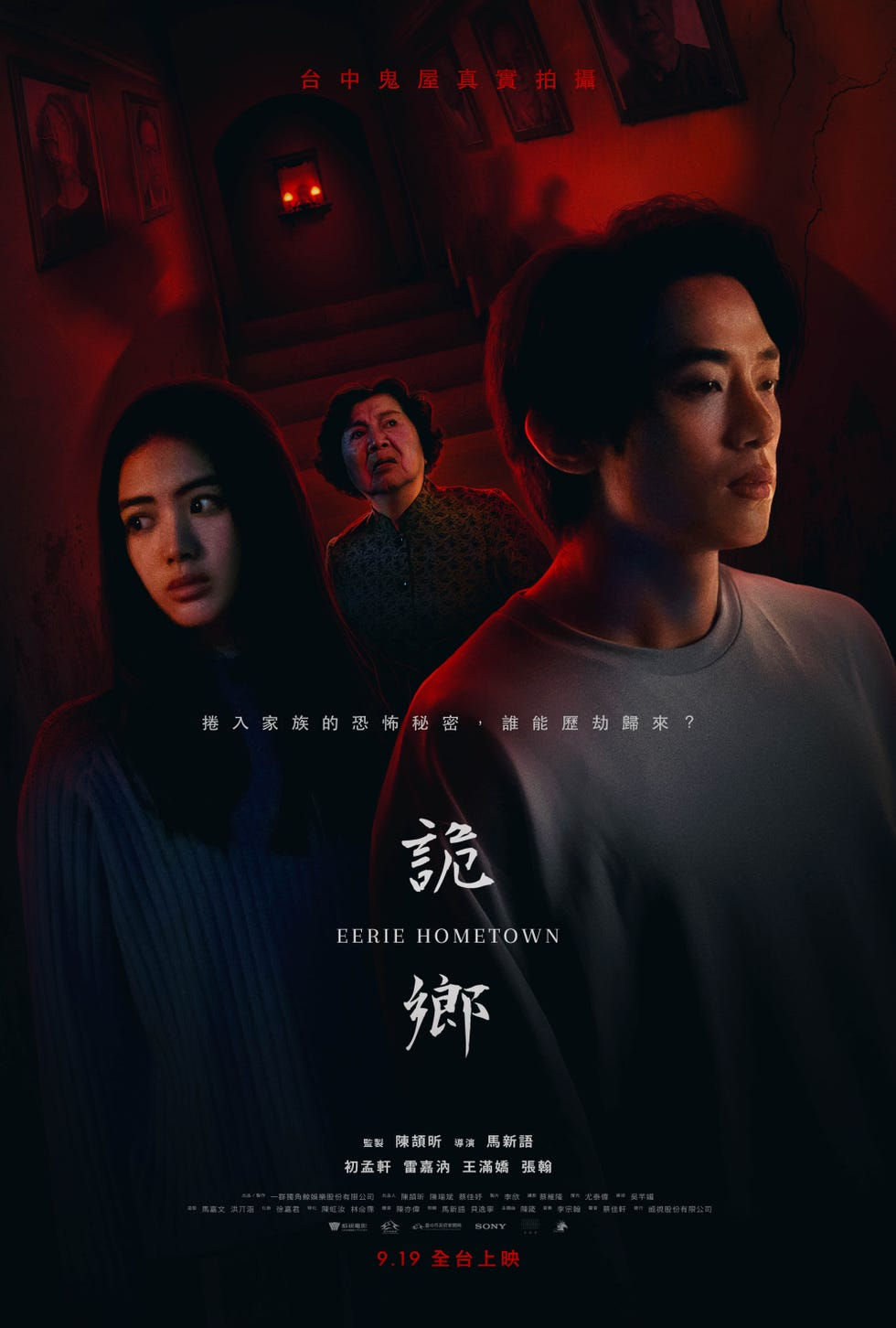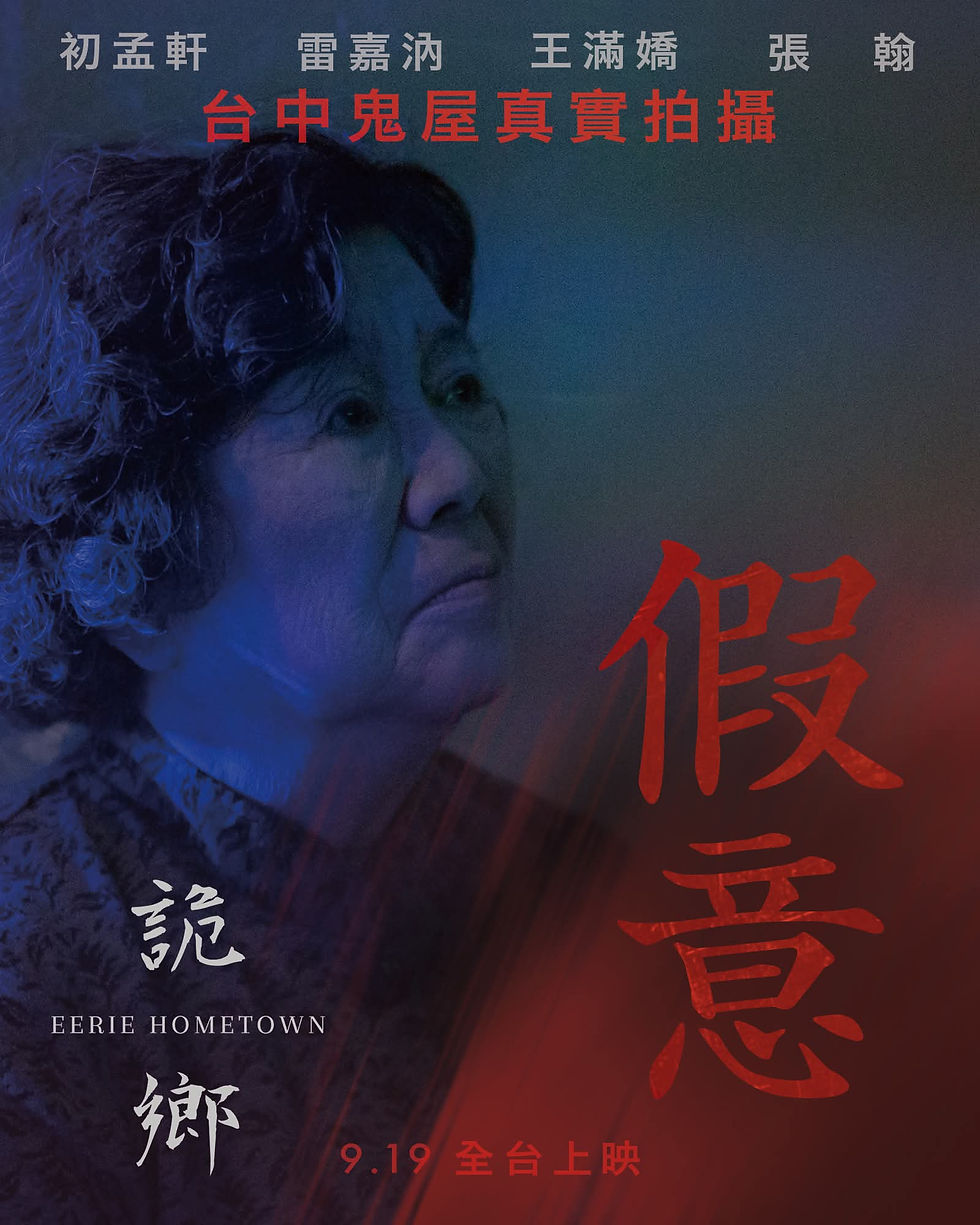比鬼更可怕的,是放不下的自己 /《詭鄉》觀後感
- Bruno Huang 黃鼎翰 / 老黑

- 2025年9月11日
- 讀畢需時 3 分鐘
The obsession that leads you to the Eerie Hometown
你聽過「抓交替」嗎?
Have you ever heard of "Zhuao Jiao Ti"?
來台灣後,每年農曆七月(鬼月),你總會聽到各式各樣的禁忌:不宜搬家、不宜購車、不宜游泳,以及那個令人毛骨悚然的傳說——「抓交替」。這是一個在台灣與華人社會流傳的民間說法,意外身亡的鬼魂若無法順利投胎,便必須在事發地點尋找活人作為「替死鬼」,自己才能轉世輪迴。被抓走的活人會取代原來的鬼魂,繼續尋找下一個替身,形成一個無止盡的循環。這也是為什麼,人們總說同一個水域或交通路段,意外事件會一再發生。不論你信不信,我都將它視為一種安全的提醒。
After coming to Taiwan, you'll hear about various taboos during the seventh lunar month, also known as Ghost Month: no moving houses, no buying cars, no swimming, and the chilling folk legend of "Zhuao Jiao Ti," which literally translates to "grabbing a substitute." This is a widespread belief in Taiwanese and Chinese societies that the ghosts of those who died in an accident are unable to reincarnate unless they find a living person to serve as a "substitute" at the scene of their death. The living person who is "grabbed" takes the place of the original ghost, becoming the new one and continuing the search for the next substitute, forming an endless cycle. This is why people often say that accidents happen repeatedly at the same body of water or on the same road. Whether you're a believer or not, I see it as a cautionary tale to stay safe.

台灣電影《詭鄉》便從這個民間傳說切入,但不同於一般鬼片,它沒有過於煽情的驚悚特效或快節奏的跳躍式驚嚇。導演馬新語與監製陳頡昕將家族故事融入其中,以一種更為內斂與寫實的手法,將觀眾帶入一場關於家族秘密與個人身分認同的探索。電影中的「抓交替」不再只是單純的鬼魂索命,它被賦予了更深的意義——或許鬼魂無法離去,是因為對生前某件事的執念仍然放不下。
The Taiwanese film Eerie Hometown delves into this folk legend, but unlike typical horror films, it avoids sensational jump scares or fast-paced special effects. Instead, directors Ma Hsin-yu and Chen Chieh-hsin, drawing from their own family stories, use a more subtle and realistic approach to draw the audience into a journey of family secrets and personal identity. The "Juao Jiao Ti" in the film is not just about a ghost haunting for a substitute; it takes on a deeper meaning. Perhaps the ghosts can't leave because they are holding on to a certain obsession from their life.

這讓我不禁思考,其實不只鬼魂,我們人類何嘗不是如此?
This made me wonder if we, as humans, are any different.
我們常常被心中的執念困住,那些耿耿於懷的過去、無法釋懷的怨恨,或是對未來的過度擔憂,都像一個無形的枷鎖,讓我們停滯不前。我們困在自設的「無限循環」裡,不斷重複著同樣的思維模式,走不出心靈的牢籠。
We are often trapped by our own obsessions—the lingering past, unresolved grudges, or excessive worries about the future. These can act like invisible shackles, keeping us from moving forward. We get stuck in a "never-ending loop" of our own making, repeating the same thought patterns and unable to escape our mental prisons.

電影的結尾或許給了我們一個啟示:放下執念,才能掙脫束縛,重新開始。這場詭譎的返鄉之旅,最終成為主角與自己、與過去和解的過程。透過了解家族的歷史,他不僅揭開了真相,也釋放了被困住的靈魂,最終也讓自己得以釋懷。
The film's ending may offer us a revelation: letting go of our obsessions is the only way to break free and start anew. The eerie journey back home becomes a process for the protagonist to reconcile with himself and his past. By understanding his family's history, he not only uncovers the truth but also releases the trapped souls, ultimately finding his own peace.

在這個充滿禁忌的鬼月,觀賞《詭鄉》或許是一種獨特的祈福。它提醒我們,真正的解脫,並非來自於對外在禁忌的遵守,而是源於內心執念的放下。唯有放下,我們才能真正自由,繼續前行。
Watching Eerie Hometown during Ghost Month offers a unique kind of blessing. It reminds us that true liberation doesn't come from following external taboos but from letting go of the obsessions within us. Only by letting go can we truly be free and move on.
電影預告 Movie Trailer:
.jpg)





留言